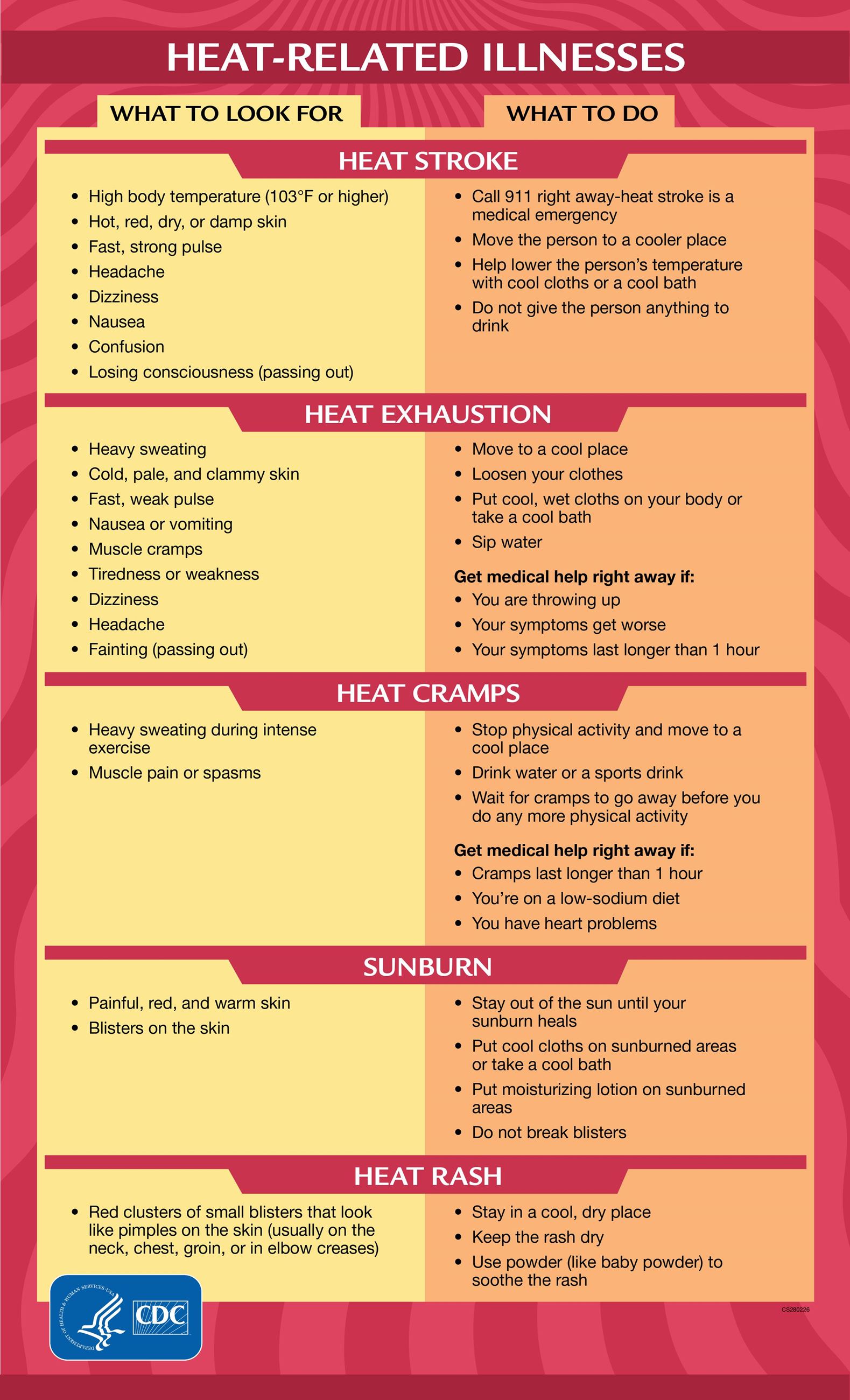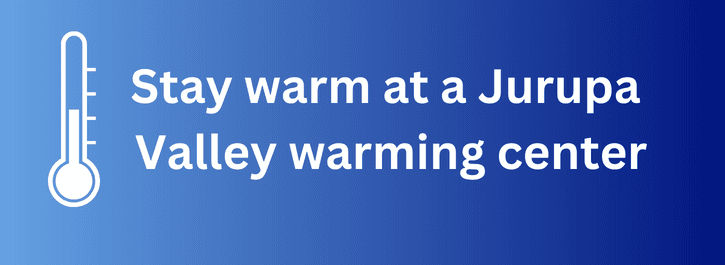Heat and Cold Relief

Cooling Centers
Cool centers are provided for and open to the public for those in need of temporary relief from the heat.
Find the closest cooling center near you
Note: Locations and times listed below are subject to change. Please click the link for the most up-to-date information.
Louis Robidoux Library
5840 Mission Blvd.
(951) 682-5485
- Mon. - Wed. 10:00 a.m. - 6:00 p.m.
- Thu. 12:00 p.m. - 8:00 p.m.
- Fri. & Sat. 10:00 a.m. - 6:00 p.m.
- Sun. 1:00 p.m. - 5:00 p.m.
Glen Avon Regional Library
9244 Galena St.
(951) 685-8121
- Mon. & Tues. 12:00 p.m. - 6:00 p.m.
- Wed. 12:00 p.m. - 8:00 p.m.
- Thu. 10:00 a.m. - 6:00 p.m.
- Fri. 1:00 p.m. - 5:00 p.m.
- Sat. 10:00 a.m. - 2:00 p.m.
Eddie Dee Smith Senior Center (Seniors Only)
5888 Mission Blvd.
(951) 275-9975
- Mon. - Fri. 11:00 a.m. - 3:00 p.m.
Precautions to Take Against Extreme Heat
- Drink plenty of water
- Limit outdoor exercise
- Avoid alcohol and caffeinated drinks
- Wear light-colored clothes with adequate air circulation
Understanding Heat-Related Illnesses


Warming Centers
Warming centers are provided for and open to the public for those in need of temporary relief from the cold.
Find the closest warming center near you
Note: Locations and times listed below are subject to change. Please click the link for the most up-to-date information.
Louis Robidoux Library
5840 Mission Blvd.
- Mon. - Wed. 10:00 a.m. - 6:00 p.m.
- Thu. 12:00 p.m. - 8:00 p.m.
- Fri. - Sat. 10:00 a.m. - 6:00 p.m.
- Sun. 1:00 p.m. - 5:00 p.m.
Glen Avon Regional Library
9244 Galena St.
- Mon. - Tues. 10:00 a.m. - 6:00 p.m.
- Wed. 12:00 p.m. - 8:00 p.m.
- Thu. 10:00 a.m. - 6:00 p.m.
- Fri. 1:00 p.m. - 5:00 p.m.
- Sat. 10:00 a.m. - 2:00 p.m.
What is hypothermia?
Most people do not associate hypothermia with Southern California Climate, however with the cooler winter temperatures and the increased potential of rainfall due to winter storms many people that are exposed to cool wet conditions for extended periods of time are highly susceptible to hypothermia.
Hypothermia is caused by prolonged exposure to very cold temperatures. When exposed to cold temperatures, your body begins to lose heat faster than it’s produced. Lengthy exposures will eventually use up your body’s stored energy, which leads to lower body temperature.
Body temperature that is too low affects the brain, making the victim unable to think clearly or move well. This makes hypothermia especially dangerous, because a person may not know that it’s happening and won’t be able to do anything about it.
While hypothermia is most likely at very cold temperatures, it can occur even at cool temperatures (above 40°F) if a person becomes chilled from rain, sweat, or submersion in cold water.
Who's most at risk?
Victims of hypothermia are often:
- Older adults with inadequate food, clothing, or heating.
- Babies sleeping in cold bedrooms.
- People who remain outdoors for long periods—the homeless, hikers, hunters, etc.
- People who drink alcohol or use illicit drugs.
What are the signs and symptoms of hypothermia?
Adults:
- Shivering
- Exhaustion or feeling very tired
- Confusion
- Fumbling hands
- Memory loss
- Slurred speech
- Drowsiness
Babies:
- Bright red, cold skin.
- Very low energy.
What to do if you think someone has hypothermia:
Hypothermia is a medical emergency. If you notice any of the above signs, take the person’s temperature. If it is below 95° F, get medical attention immediately! If you are not able to get medical help right away, try to warm the person up.
- Get the person into a warm room or shelter.
- Remove any wet clothing the person is wearing.
- Warm the center of the person’s body—chest, neck, head, and groin—using an electric blanket, if available. You can also use skin-to-skin contact under loose, dry layers of blankets, clothing, towels, or sheets.
- Warm drinks can help increase body temperature, but do not give alcoholic drinks. Do not try to give beverages to an unconscious person.
- After body temperature has increased, keep the person dry and wrap their body, including their head and neck, in a warm blanket.
- Get the person proper medical attention as soon as possible.
Precautions to take against extreme cold: